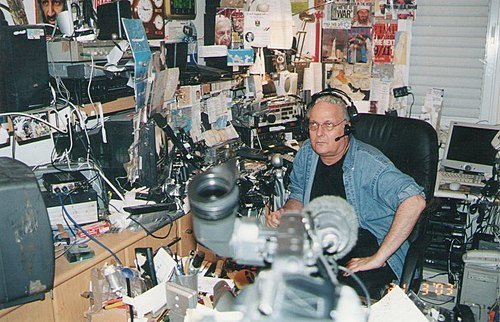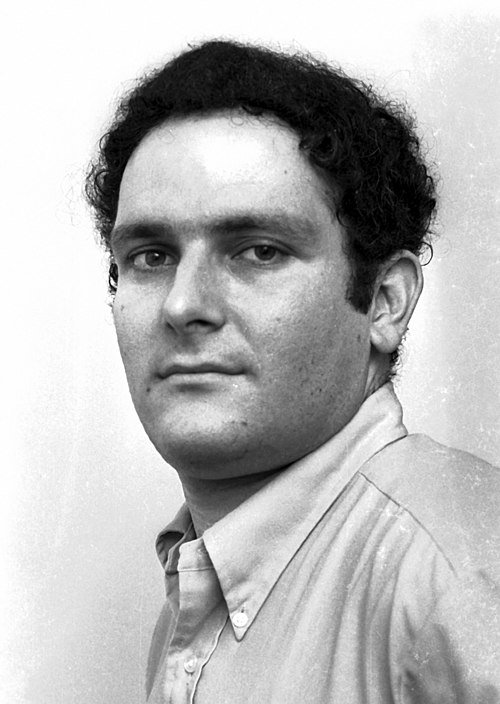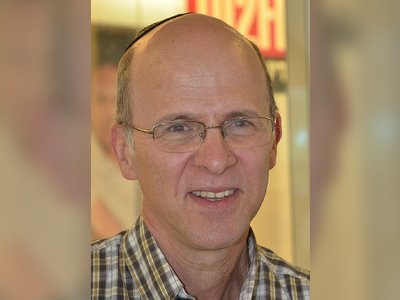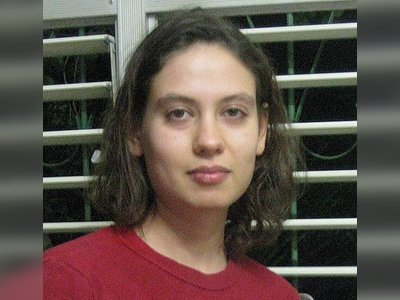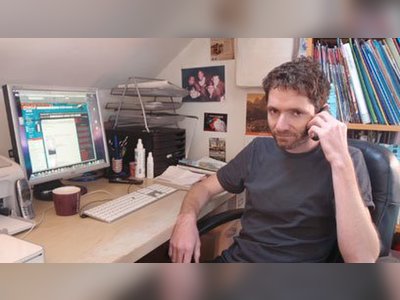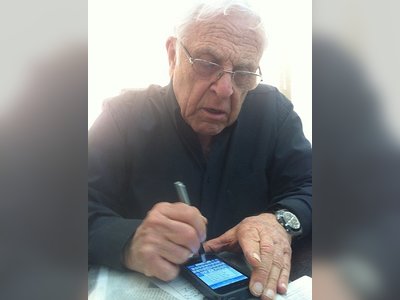Mickey Gordos
Michael (Mickey) Gordos (November 9, 1944 – November 28, 2017) was an Israeli journalist who continuously covered global events by listening to live broadcasts from radio and television stations worldwide.
Biography
Michael (Mickey) Gordos was born in Tel Aviv to Nathan Gordos, who represented the French news agency in Israel. Gordos began working for "Kol Israel" in 1968. Equipped with radio receivers set up in his home on Chen Street in Tel Aviv, and fluency in six languages (Hebrew, Arabic, English, French, Russian, and Polish), he listened to radio stations from around the world and relayed immediate news updates to Kol Israel regarding events taking place abroad.
Over the years, he also began using advanced means to listen to foreign television stations and even remote broadcasts and aircraft radio transmissions from airports around the world.
Over time, he earned the nickname "The Listener," and his name became known in international media networks.
Gordos recorded and broadcasted numerous significant events that occurred globally, closely monitoring their developments.
In October 2014, the broadcasting authority severed its ties with Gordos due to conflicts with other journalists and the fact that he had exceeded the retirement age.
Gordos resided in Tel Aviv, and in his later years, he moved to Yehud. He was married to Blaha and had three daughters. He suffered from diabetes and passed away at his home in Yehud.
Listening to Foreign Broadcasts
Gordos listened to broadcasts from foreign stations worldwide, particularly from Radio Moscow and broadcasts from Cairo, regularly providing Kol Israel with reports on news from these stations. Among other things, he reported on Radio Moscow broadcasts regarding the meeting between Nahum Goldmann and King Hassan II of Morocco and the Nuremberg Trials.
During the Yom Kippur War, Gordos closely followed Egyptian television broadcasts and relayed information about Israeli pilots who had landed in Egyptian territory. A team from the IDF was sent to Gordos' home and captured still photographs of the broadcast (this was before the use of video equipment).
These photographs were crucial in identifying missing or presumed dead Israeli pilots. For this, Gordos received the appreciation of official representatives in the Israeli Air Force.
Gordos brought news from broadcasts of small stations around the world that related to Judaism and Israel. For example, he reported on underground broadcasts of the Basque separatist movement in Spain regarding the Nuremberg Trials.
In early 2010, he covered the earthquake that occurred in Haiti on January 12, 2010, causing extensive destruction and tens of thousands of casualties, marking one of the most significant natural disasters in modern history.
Gordos provided a comprehensive account of the rescue and relief efforts in Haiti, along with descriptions of the devastation, casualties, and injuries. On January 17, when radio stations in Haiti resumed broadcasting, Gordos relayed their voices to listeners in Israel.
Listening to Secret Communications
Gordos frequently listened to communications not intended for the general public. The Ministry of Communications warned him about this, claiming that he was acting contrary to the license granted to him and international law.
In 1968, he was the first to report on Operation Thunderbolt, the IDF's raid on Beirut International Airport. He captured the air traffic controller exclaiming, "There's a big fire at Beirut International Airport, there's a big fire."
In 1970, he exposed that the Soviets had opened an air bridge to Egypt, including advanced SAM missiles and military forces. This revelation gained him significant recognition, with documentary footage shown in the United States.
In September 1970, he intercepted broadcasts related to the attempted hijacking of an El Al plane from Amsterdam to New York as part of the hijacking of planes to Dawson's Field, executed by Leila Khaled and her associates.
In July 1974, Archbishop Makarios, the President of Cyprus, was overthrown by a military coup that announced his death. However, Gordos' listening devices picked up a weak broadcast from the city of Paphos in which Makarios himself called for help. Michael Gordos broadcasted this information, leading to a British rescue mission that successfully rescued the President. Makarios later credited Gordos with saving his life.
Gordos also listened to conversations originating from the aircraft of the President of the United States, Air Force One. During the Watergate scandal, he listened to a conversation held by then-White House Chief of Staff General Alexander Haig, where it was revealed that representatives of the prosecution had come to the White House to obtain the recordings made by President Richard Nixon. Haig, who went by the alias "Zaph," instructed how to prevent the investigators from accessing some of the recordings.
Gordos relayed this conversation to NBC television, which identified it as Haig's voice. These recordings were presented to the Senate committee that deliberated on Haig's nomination as Secretary of State. Gordos' actions led to an official complaint against him from the American State Department. In response, the Israeli Foreign Ministry advised the Americans that if they wished to keep their sensitive conversations from being intercepted, they should take measures to prevent it.
In 1976, Gordos exposed the hijacking of an Air France plane in Greek airspace. The plane was later transferred to Entebbe, and some of its passengers were released during "Operation Jonathan."
In October 1977, a Lufthansa passenger plane, flying from Mallorca to Frankfurt, was hijacked and landed in Mogadishu, Somalia. Gordos intercepted the communications used by the hijackers and subsequently the communications of the German rescue operation as they prepared to rescue the hostages.
Gordos requested that his findings not be broadcasted, but contrary to his wishes, "Kol Israel" reported on the rescue preparations. Gordos experienced several days of anxiety until the rescue operation was successfully executed.
In the early stages of the Iran-Iraq War in 1980, Gordos intercepted broadcasts that indicated an aerial movement from Libya to Iran. From this, he deduced that Libya was part of the broader Arab solidarity that supported Iraq and aided Iran in its war against Iraq. He broadcasted this information, and the next day, Iraq severed its diplomatic relations with Libya.
On August 2, 1990, Iraqi forces invaded Kuwait, leading to the First Gulf War. Mickey Gordos was the first in Israel to discover the invasion, preempting the Israeli Intelligence Directorate.
- מיקי גורדוסhe.wikipedia.org
